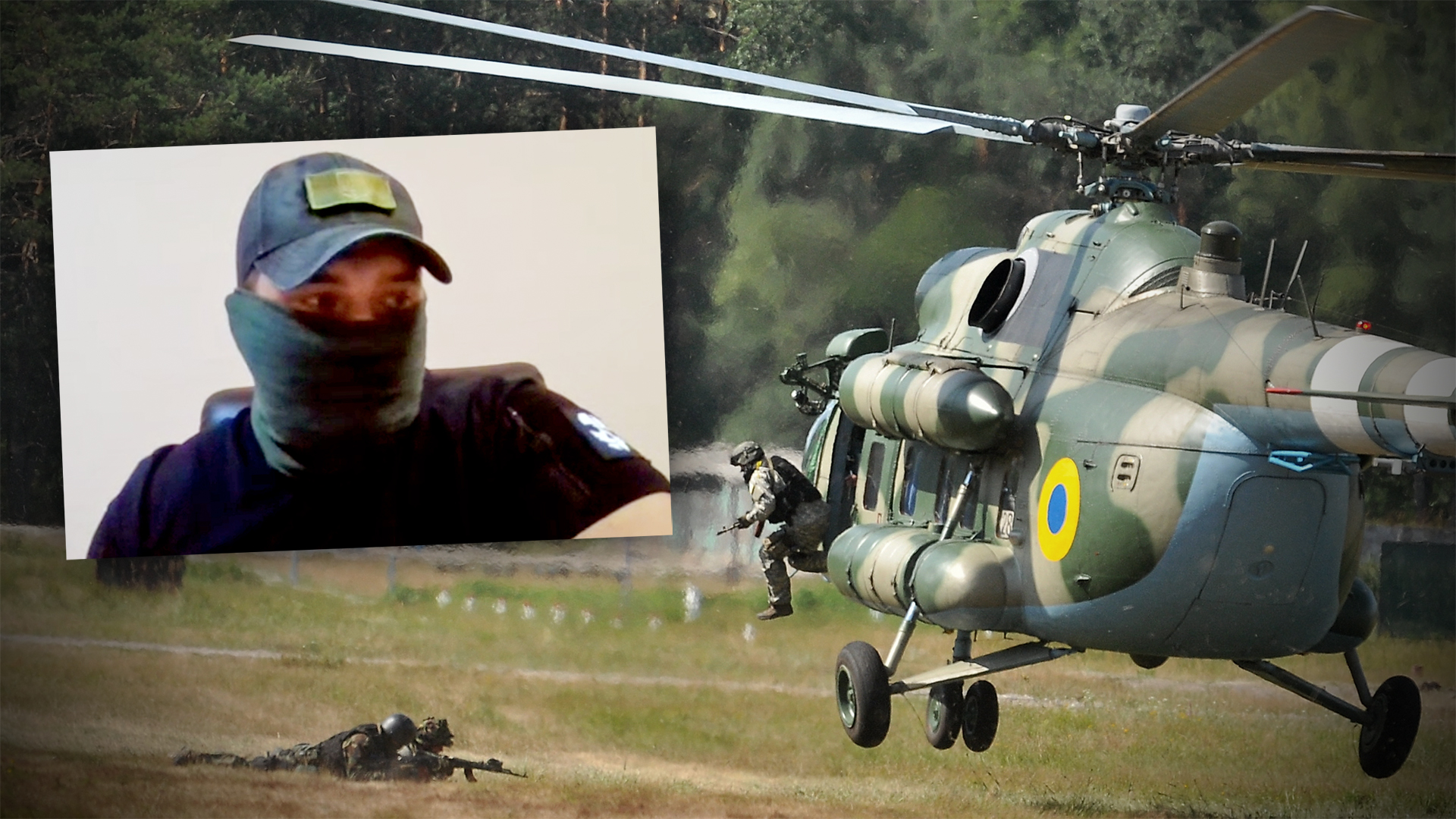Sometimes they cross the border by helicopter. Other times, by foot.
But the objective is always the same, says the head of a shadowy Ukraine special operations group known as the Shaman Battalion.
Give the Russians a taste of what Ukrainians have been experiencing since 2014. And especially since Feb. 24.
“You might have heard about the missiles strike at the shopping mall recently,” the man who goes by the callsign ‘Shaman’ told The War Zone in an exclusive interview Thursday morning. “You’ve definitely heard about Bucha. You’ve heard about the missile strike at the railway station with refugees at Kramatorsk. I wish all these special ops actions would happen on Russian soil now. Because I want them to know the feeling that they give to the people of Ukraine.”

Speaking through an interpreter via Zoom, Shaman, the leader of the eponymous group, said the battalion is doing its part to make that happen.
Over the course of Russia’s all-out war on Ukraine, images of attacks inside Russia have appeared on social media. They’ve been carried out on a wide array of targets, including an ammunition storage facility, an airbase, and what appeared to be a daring raid by Ukrainian Mi-24 Hind attack helicopters in April that crossed low over the border into Russia and struck an oil storage facility in Belgorod.
While declining to offer details about specific locations of these clandestine missions, Shaman smiles when asked about that raid.
“You know that that explosion on the refinery in Belgorod is not the end,” he said. “It’s just the tip of the iceberg.”
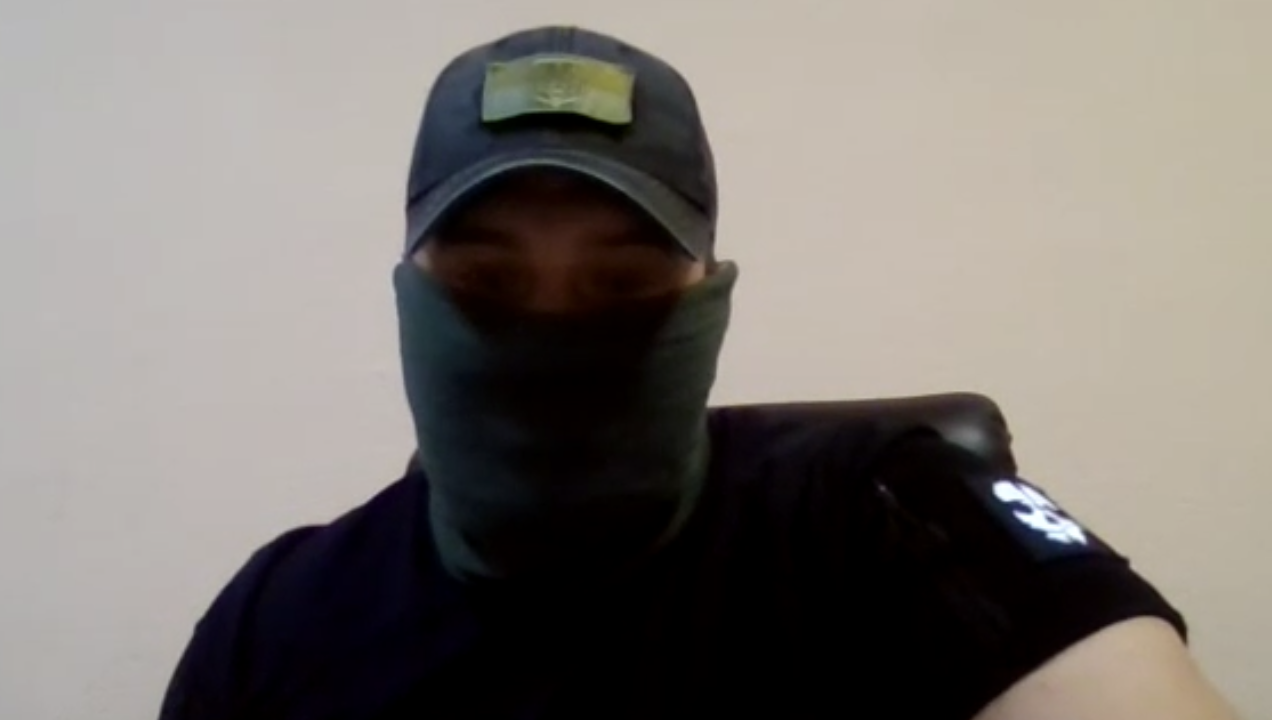
Special operations missions into Russia, or Russian-held Ukrainian territory, is not a new phenomenon, Shaman said.
They began not long after Russia annexed Crimea and invaded Donbas in 2014.
“There were previous missions, multiple big numbers of them, into Crimea and other territories,” said Shaman. “We had some operations in Russia long before 2022. Because Russia actually started this war against Ukraine in 2014, not in 2022.”
Those raids, he said, continue.
“And that’s nothing unusual,” he said, once again declining to offer specifics. “We’re using ordinary tactics of SOF [special operations forces ] units. It’s a routine and right thing to do. We’re raiding their rear. We’re conducting diversions. So there’s nothing really special about it. It’s indeed complicated work to do. But we love it and we’re doing it with pleasure.”
The work may be complicated, but Shaman says planning the missions is not.
“It’s actually it’s quite simple to describe,” he said. “Every time when we’re doing planning, and we’re preparing the mission, it’s ordinary preparation that is done by every special forces unit across the globe. And the tactics we use are the same tactics.”
There is one difference, he said, smiling.
“The only thing is that our plans are always ideal. They always work because our main motto is ‘we’ll get there and then we’ll see.’ So we get there and then we see. That’s why it always goes well.”
Making the decision to go on a raid is not easy. But once it’s made, there is an inner peace.
“The first and the hardest thing to do is you need to come to terms with yourself,” said Shaman. “You’ve got to take that decision. Because you understand that the chances for success most of the times are 50-50 and chances to get back are actually even less than that. But when once the decision is made, it’s quite easy. “
Given the long odds, the only people who go on missions are those who want to, Shaman said.
“We always seek only volunteers. We never task people to do something. They’re volunteers and they’re worth going to Valhalla if they fall in a battle.”
Shaman also heaped tremendous praise on the helicopter pilots who take them on missions.
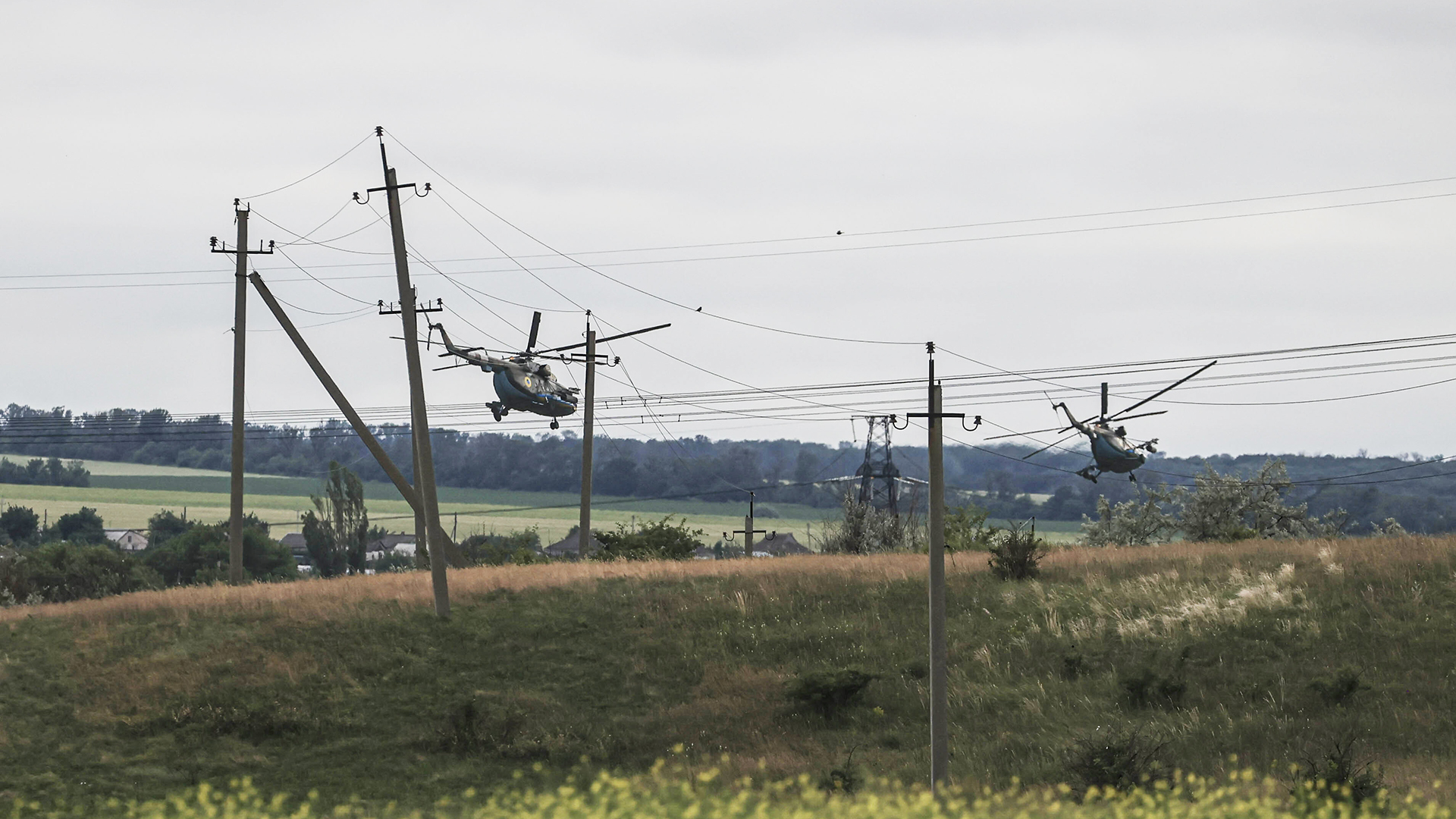
“What is really important is that we have great helicopter pilots. They’re the guys who have very precise, very outwritten plans that consider all necessary details. They’re super pilots. They’re strong, intelligent, and very highly motivated.”
The pilots, said Shaman, actually do the bulk of the work.
“They help us to infiltrate and they also help us to exfiltrate. They actually are doing the biggest part of the job. Our job on the spot is just to kill everyone, and then they get us back. They practically support what we’re doing and that requires a lot of skill.”
There is, he said, an exhilaration from taking part in these raids
“You feel the cold of your blood and you feel the rush of adrenaline.”
The missions into Russia are “not a big secret,” said Shaman. “Sometimes it happens on a helicopter. Sometimes we go in by foot. Most of the times we’re able to locate the good entry point to fly in or to walk on foot into Russia and then afterwards, what can I say?”
Again, a slight smile creases his face, which is barely visible from behind an olive drab balaclava that covers most of it.

“I want to send my best regards to Belgorod,” he said, referring to the site of the April refinery raid. “I want to suggest to them to make stocks of fuels, grain, maybe flour, and salt. They might need it in future. And also I’d like to ask them to start thinking what’s going on and maybe shake up and start doing something.”
Shaman said his callsign comes from the Ukrainian soothsayers and healers who beat drums as part of their ceremonies.
“There’s this saying that hitting on the face is like hitting at this instrument,” he said. “So I’m good at hitting the face.”
The battalion that takes his name was created after Russia launched its full-scale invasion.
“When this war started, I gathered a bunch of old pirates who were willing, had no fear and complaints, and wanted to defend their country,” said Shaman. “People just started asking, ‘who are those people? Those are Shaman’s people.’ That’s how they started calling the battalion the Shaman battalion.”
Reporting to Ukraine’s Defense Intelligence directorate, the battalion is made up of diverse segments of Ukraine society.
“There are a variety of very different personalities because today in Ukraine there are no shades of grey. There’s only black and white – I mean good and evil. So either you’re either fighting for your country or working to help those who are fighting. If not, it means you are on the other side.”

“That is why the team of people I have are extremely motivated. They are people from various circles and they don’t need any extra motivation or influence. I have ex-generals. I actually have an ex-deputy minister from [the] government who’s fighting in my team now. They are representatives, if you will, of the elite circles of society. But today they’re fighting for this country. With honor, they’re doing the right thing. They have no pity [for] themselves [or] the enemy.”
After about a half-hour of talking, Shaman excused himself, but before leaving, introduced one of his men – the ex-deputy minister.
Dressed in camouflage, he introduced himself by his callsign – Sydney.
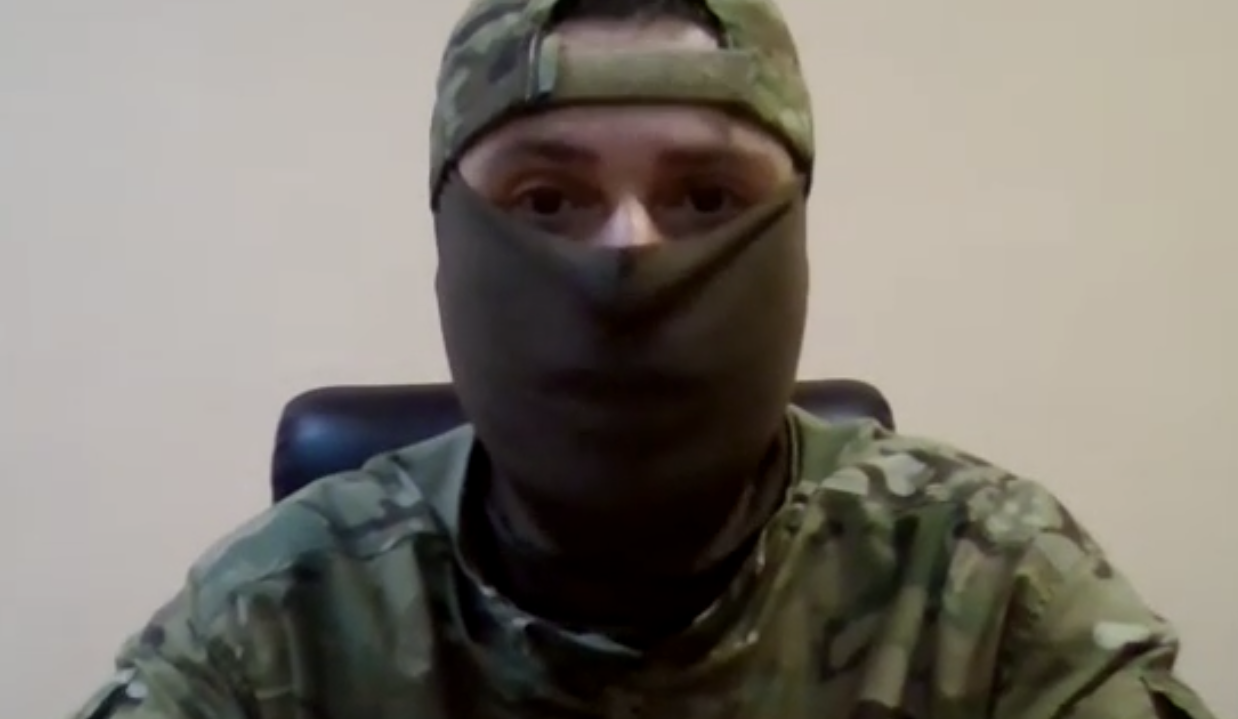
“We’ve known each other before this outbreak of large-scale Russian aggression against us,” Sydney said. “But on the 24th of February, at about six in the morning, was the first time when I met Shaman as my commander.”
There was no entry training course to join the battalion.
“The primary bar is a personal conversation with the battalion commander,” Sydney said. “But then we’re doing polygraphs and it’s a quite ordinary procedure. So we take all the necessary steps.”
Shaman battalion members “all have different levels of training,” said Sydney. “We are people of different ages. Beginning from 18 years up to 50 and we even have a few older guys. As our commander once said, we’re all members of the crew of the last pirate battleship.”
And that, said Sydney, is what makes this unit so interesting.
“The Shaman battalion is not a standard unit. There is a symbiosis of experience and motivation, and I believe this is the reason why some time after I suppose there will be many stories in books or even in movies.”
But the unit’s first mission, to try and secure Antonov Airport in Hostomel near Kyiv, did not go as well as hoped.

“Regretfully there’s been lots of strategic mistakes made that cannot be fixed now, but at least we can extract some experience and some lessons learned from those mistake of ours.”
Preparations for resisting the incoming enemy air assault “were not at the highest level possible,” he said.
“A group of Shaman got its orders and started moving to the airfield right after the first missiles struck at the airfield. We actually had trouble getting there because by that time, citizens of Kyiv, a majority of them, were trying to flee using the very same roads. And it was very hard. It was very complicated just in getting there.”
Once there, “the enemy was already overhead and we weren’t properly ready for the following action. So definitely from the technical perspective, certain needed preparations were not done.”
Russians were already pounding the airfield with missiles.
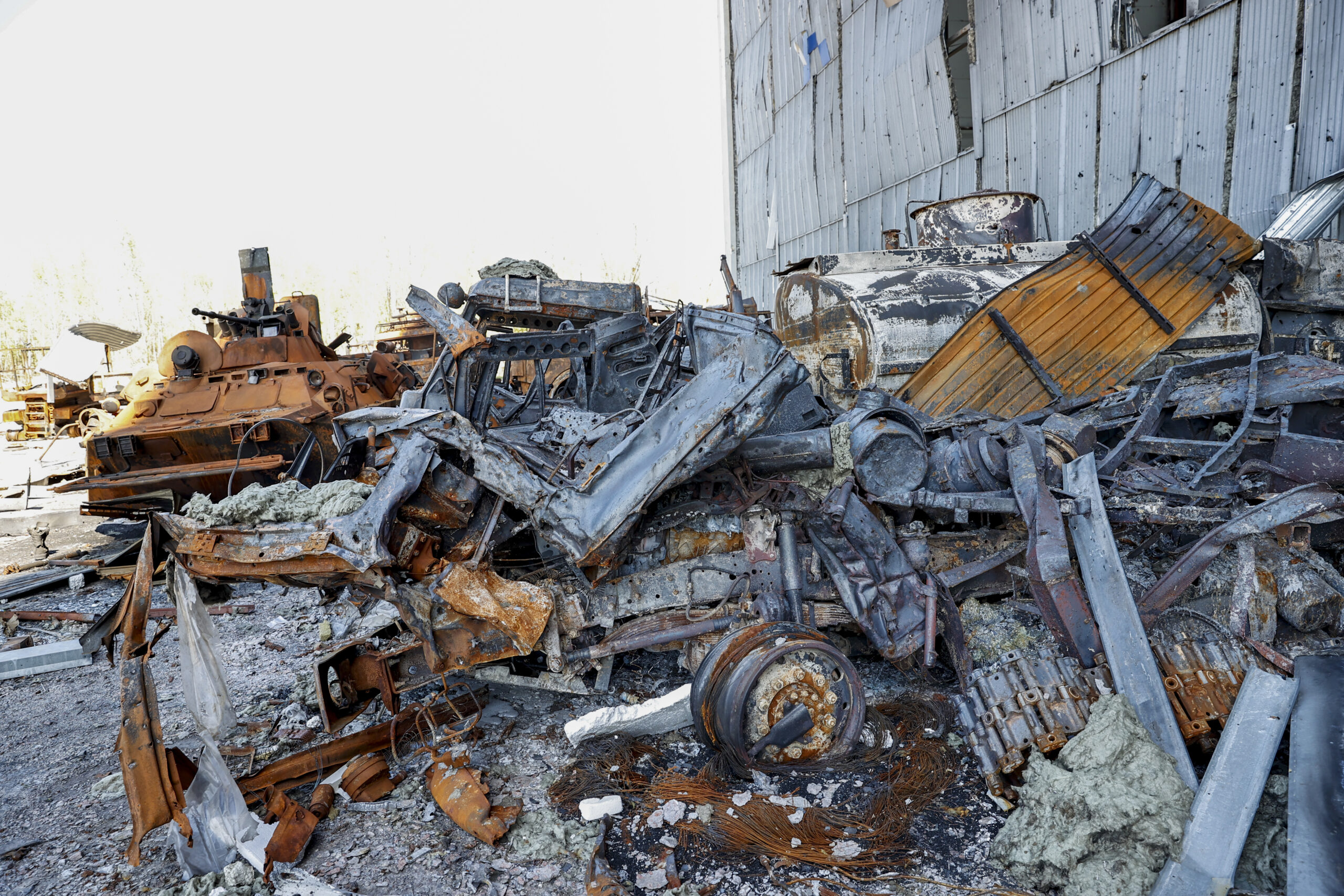
“There was an impact site of a Tochka-U, which is a big missile,” said Sydney. “Then there were a lot of Sukhoi aircraft that were flying over, dropping stuff.”
After that came the helicopters. Huge waves of them.
“There were over 44 helicopters with air assault troops and our problem on the spot was that we were lacking a means and assets for taking them down in those numbers.”
Sydney then praised the young Ukrainian National Guard troops who stood their ground, firing old Soviet-era man-portable air defense systems (MANPADS) at the overwhelming influx of Russia’s vaunted VDV airborne assault troops.

“I would like to give credit to the young boys. Some of them were 18 and 19 years old. Their mission was to guard the airfield and runway itself. They took down a few helicopters and one Sukhoi fighter jet. Despite the fact that they’re people of 18 and 19 years of age, they have balls bigger than many people in this world.”
The attack on the airport was eventually repelled, the biggest in a cascading series of military disasters for Russia that led to their ignominious retreat.
But before they left Antonov Airport, the Russians lashed out, said Sydney, destroying the world’s biggest airplane – the six-engine An-225 cargo jet known worldwide by its nickname Mriya.
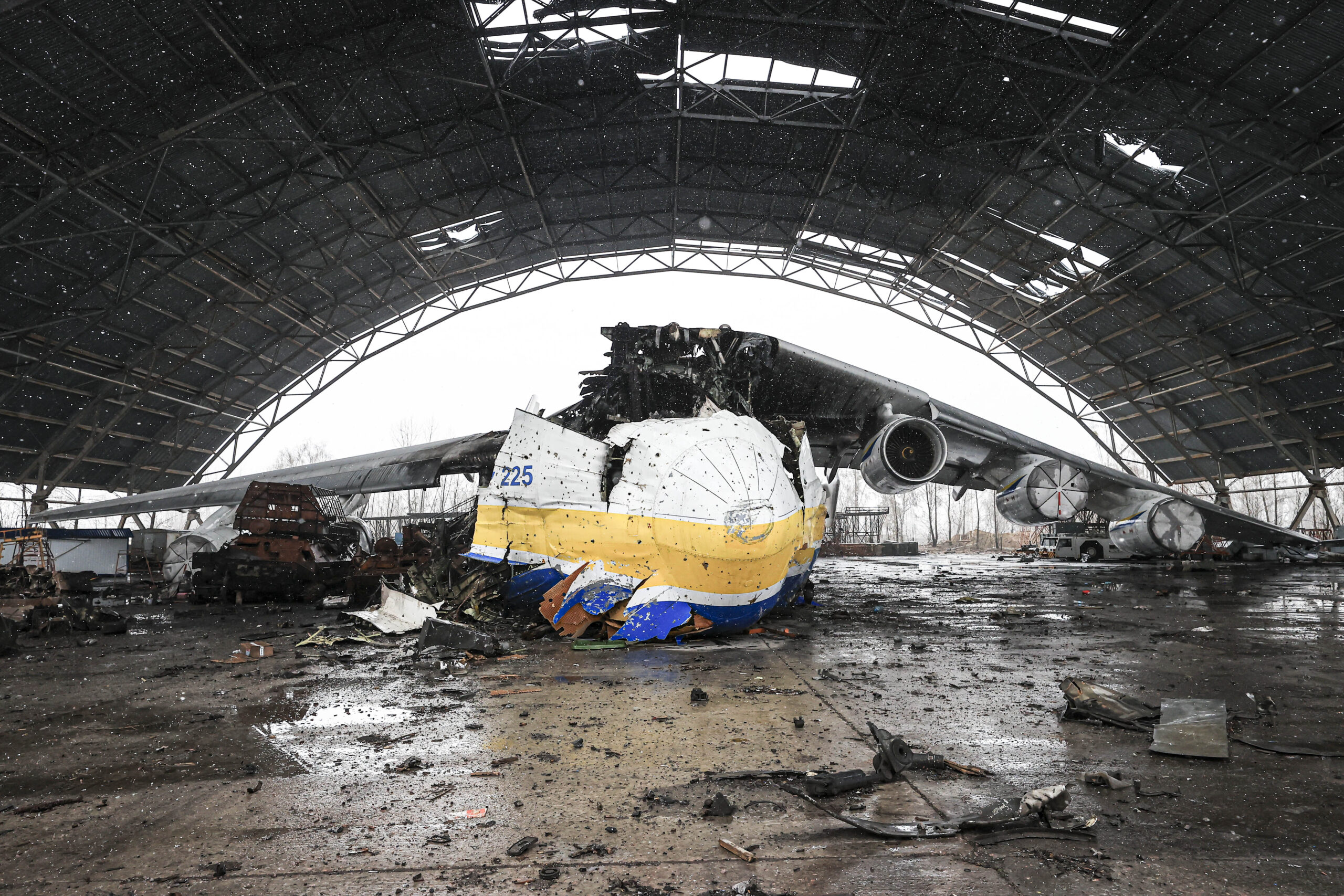
“Mriya was just burned down,” said Sydney. “I’m pretty sure it was done on purpose. The Russians are very big on symbolism. They like to pick certain dates and places and even Mriya as a phenomenon was a bone up their throats.”
So, Sydney claims, they destroyed it.
The biggest failure at Antonov Airport wasn’t a lack of weapons, Sydney said. It was not being supplied with more advanced systems.
“The problem was not that they didn’t have Javelins or Stingers. That was not the case. I know for sure.”
The reason, he said, was that “about a year ago we suggested we host a military exercise in that particular airfield.”
The plan was to train for a potential Russian air assault, like the kind that actually happened.
But that was met with resistance from higher-ups.
“When we suggested that, we were told that we have militaristic views,” said Sydney. “And because those people we were talking to didn’t want to believe, or it was hard for them to believe, that Russia may start a large-scale invasion into Ukraine, they didn’t believe us.”
He likened the situation to a recent Hollywood movie, starring Leonardo DiCaprio as a scientist whose warnings about impending doom fall on deaf and dismissing ears.
“Don’t Look Up shows really well what was going on a year ago here in Ukraine,” he said. “And I believe that to some extent, it will continue.”
Sydney said he can’t talk about any missions into Russia, deferring such discussions to Shaman, his commander.
But overall, the nature of the war has changed.
After their defeat at Antonov Airport, the Russian advance on Kyiv stalled, then fell apart.
As Russian forces retreated north to Belarus, the Shaman battalion was among those Ukrainian forces attacking them on their way out. There was a lot of close-quarters fighting along the way.
“At the very beginning of the conflict, there was a lot of close-fire combat in Moshchun, Irpin, and other small towns next to Kyiv. At that very moment, the Russians didn’t have a good understanding of where they got to.”
The nature of the war now is different.
“The only thing today’s Russian army is capable of is hitting from a far distance,” said Sydney, referring to the ongoing and somewhat successful massive long-range fires invading forces are launching against Ukraine in the Donbas area in the east of that country. “The only thing they’re capable of is bombing shopping malls, striking them with their missiles, killing civilians. causing harm to peaceful people. That’s the only thing they are capable of to date.”
So now, with the war a slugfest with neither side making huge gains or suffering catastrophic battlefield defeats, Sydney is prepared for the long haul of what he says may be a generational conflict.
“This war will not stop,” he said. “This war is forever. This war will go on until everything that obstructs us from having our normal simple lives no longer exists.”
And that will take some time.
“I’m sure that our kids will also be fighting,” he said. “And we will get them properly trained. They will be better prepared than we are.”
Contact the author: howard@thewarzone.com
